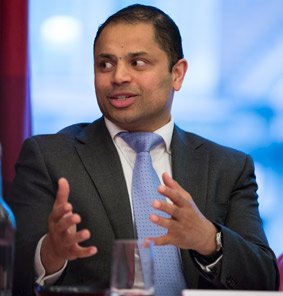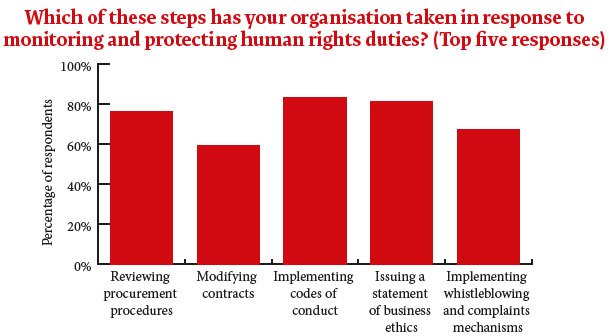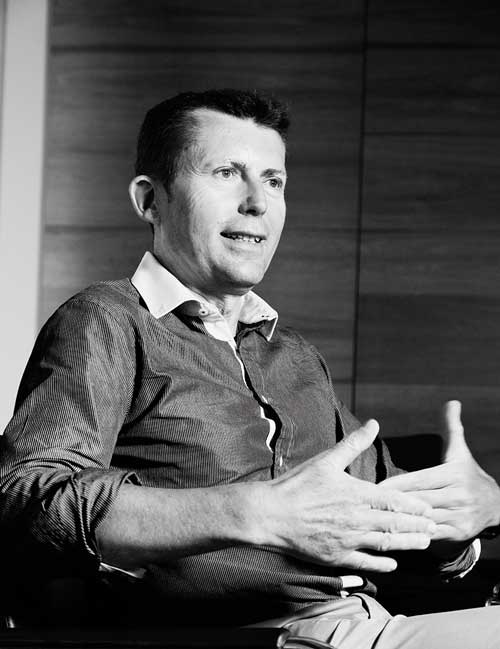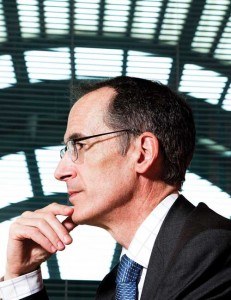Having seen Legal & General’s shares initially tumble on the Friday morning immediately after the UK’s vote to leave the EU – like so many financial services businesses – general counsel Geoffrey Timms is concerned that the business impact of Brexit could become a self-fulfilling prophecy. ‘Markets are emotional rather than factual. We can talk ourselves into trouble. There’s this end-of-the-world view online. Britain is still in a good place. Yes, the government has to fight uncertainty, but so does Europe. One hopes common sense will prevail.’
Keep calm and…
In his recent book, The Inside Counsel Revolution, Harvard Law professor and former General Electric legal chief Ben Heineman argues that the core mission of global corporations should be the fusion of high performance with robust integrity and sound risk management.
New tools, new challenges
It is possible artificial intelligence will change all our working life immeasurably in the next 20 years. It might put us all out of work; nobody knows. Even if it did happen in 20 years’ time, it is of no use to me in the way that I do my job right now and not much use to you as in-house lawyers to know what might happen. What is important is to understand what is possible now, what you can do with it and what the dangers are of trying to implement technology without thinking through what you are trying to get out of it. I will give some hard-earned experience picked up at the dirty end of a lot of technology projects.
Home House truths
Should you tweet? How do you relate to the mysterious breed of co-workers called millennials? How should lawyers navigate the rampant office politics of a major plc when they make the move in-house? Continue reading “Home House truths”
Soft law, hard sanctions

Ready for anything

British Civil Service, Gus O’Donnell, returned to Whitehall to catch up with former colleagues and host a live broadcast titled The Leavocrats on Radio 4.
Artificial bad, intelligence good
Paul Gilbert argues that AI has become a marketing gimmick that
obscures the shortcomings of legal teams.
The words ‘artificial intelligence’ bother me. I want to have a little rant about the words, but I also want to challenge the way in-house lawyers approach technology. On the words, I can legitimately stand accused of using ignorance as a shield for my laziness, but what bothers me is not that artificial intelligence isn’t clever and potentially useful, but that it sounds like the marketing kids have got hold of the dressing up box again. Continue reading “Artificial bad, intelligence good”
The governance dilemma
Stefan Stern forecasts that GCs will be forced to address a renewed
attempt to fix what ails governance in UK plc
Who knew that the staid term ‘corporate governance’ could create so much excitement? That Latinate phrase seems designed to reassure: ‘governance’ suggests order, calm, and mastery. But the chaps in the boardroom – and they still are mostly chaps for all the progress on appointing women directors – had better brace themselves for an interesting few months. Continue reading “The governance dilemma”
Perspectives: Geoffrey Timms

Profile: Michael Shaw, The Royal Bank of Scotland

Continue reading “Profile: Michael Shaw, The Royal Bank of Scotland”
Getting real – the seven deadly sins of risk factors

Continue reading “Getting real – the seven deadly sins of risk factors”
Brexit proofing – protecting the UK securitisation market
U
Continue reading “Brexit proofing – protecting the UK securitisation market”










